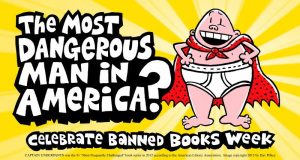Biden Rights a Wrong on Marijuana
Thursday, October 20th, 2022By Bob Gaydos
One trait of a good leader is the ability to identify an injustice and take action to rectify it.
With one stroke of his pen, President Joe Biden recently demonstrated how to use the power of his office to do just that. In the process, he also reminded Americans that a president’s primary duty is to act for the greater good of all the people rather than to constantly seek personal benefit. (A welcome reminder.)
Biden’s pardon of more than 6,500 Americans convicted on federal marijuana possession charges was a dramatic statement of policy change and a welcome redress of past bias in enforcing drug laws. Coming out of the blue, as it did, it could also be a factor in the coming midterm elections.
It’s a big deal.
Even though none of those pardoned was still in prison, Biden’s pardon sent a message: It is well past time to revamp the nation’s laws regarding marijuana use on a national level and to redress the long-standing racial bias in enforcement of the laws. At a time when many states are taking action individually to legalize the use of marijuana, for recreational as well as medicinal purposes, the president’s action brought a welcome national focus to the issue.
“While white and black and brown people use marijuana at similar rates, black and brown people have been arrested, prosecuted and convicted at disproportionate rates,” Biden said. “Just as no one should be in a federal prison solely due to the possession of marijuana, no one should be in a local jail or state prison for that reason, either.”
Of course, presidents don’t write laws; Congress and state legislatures do. Biden’s message was meant as a wakeup call to those bodies that a cohesive, national policy on marijuana is long overdue and makes much more sense than our current hodge-podge of state laws.
Biden was unambiguous in what he thinks should be done. His words:
“First: I’m pardoning all prior federal offenses of simple marijuana possession. There are thousands of people who were previously convicted of simple marijuana possession who may be denied employment, housing, or educational opportunities as a result. My pardon will remove this burden.
“Second: I’m calling on governors to pardon simple state marijuana offenses. Just as no one should be in federal prison solely for possessing marijuana, no one should be in a local jail or state prison for that reason, either.
“Third: We classify marijuana at the same level as heroin — and more seriously than fentanyl. It makes no sense. I’m asking Secretary (Xavier) Becerra (Health and Human Services) and the attorney general to initiate the process of reviewing how marijuana is scheduled under federal law.”
Clear and concise.
The so-called “war on drugs,” begun by President Richard Nixon in 1969, was, among other things, theoretically supposed to focus on “prevention of new addicts, and the rehabilitation of those who are addicted.” For the most part, that health-oriented focus has been ignored for half a century as the federal government fought a losing battle focused primarily on getting rid of drugs and locking up users (especially non-white marijuana users) as well as sellers.
As Nixon’s henchman, John Ehrlichman, subsequently revealed, the real purpose of Nixon’s “war on drugs” was to criminalize blacks and hippies and their leaders. It was political.
Now, more than a trillion dollars later, another president has issued a sensible call for a review of one of the more glaring failures of that misbegotten war.
Biden has done what he can do. It’s up to lawmakers to write fair and honest laws regarding marijuana. A majority of Americans support this. While the lawmakers are at it, it’s also well past time to recognize drug addiction as a health issue, not a crime issue. Reducing the demand for drugs might prove to be a more effective strategy than simply trying to reduce the supply.
Of course, this approach might put a crimp in some politicians’ campaign messages, but it would clearly be for the greater good of all the people.
rjgaydos@gmail.com
Bob Gaydos is writer-in-residence at zestoforange.com.



